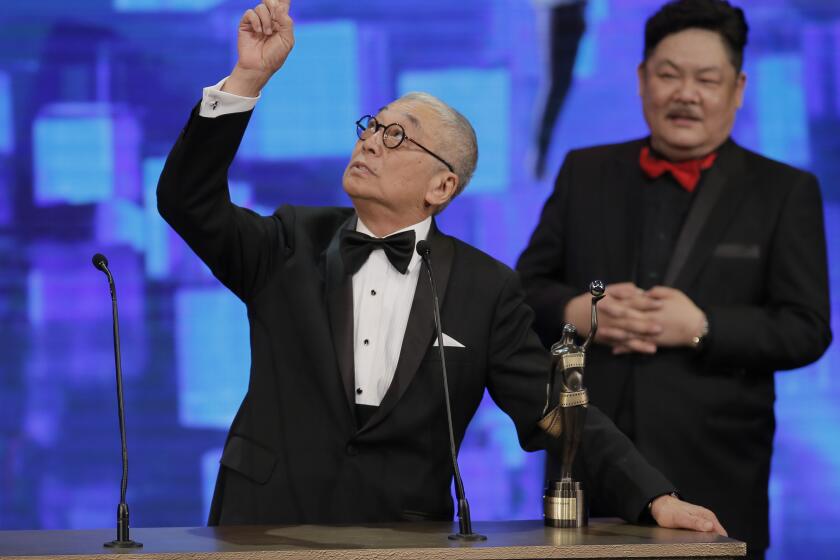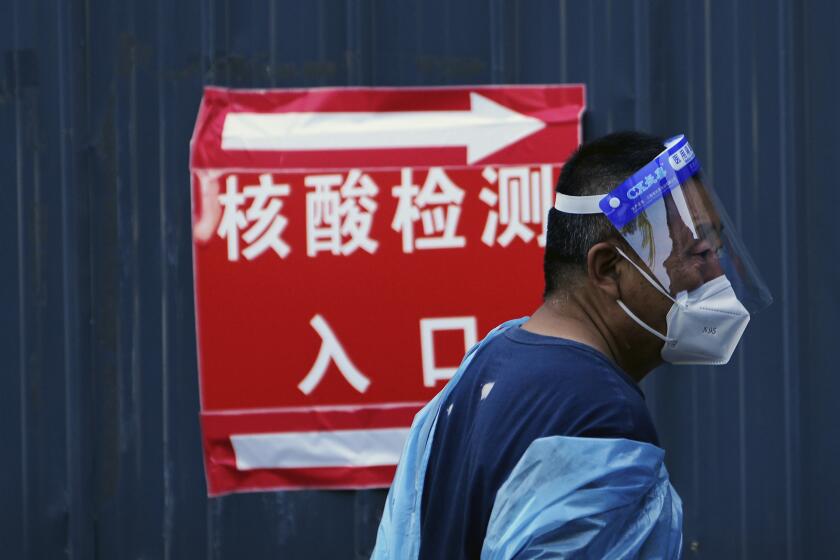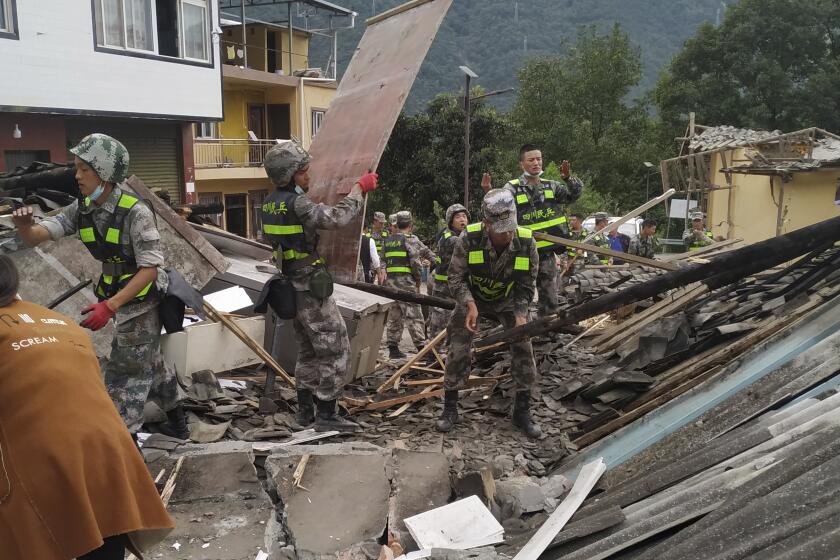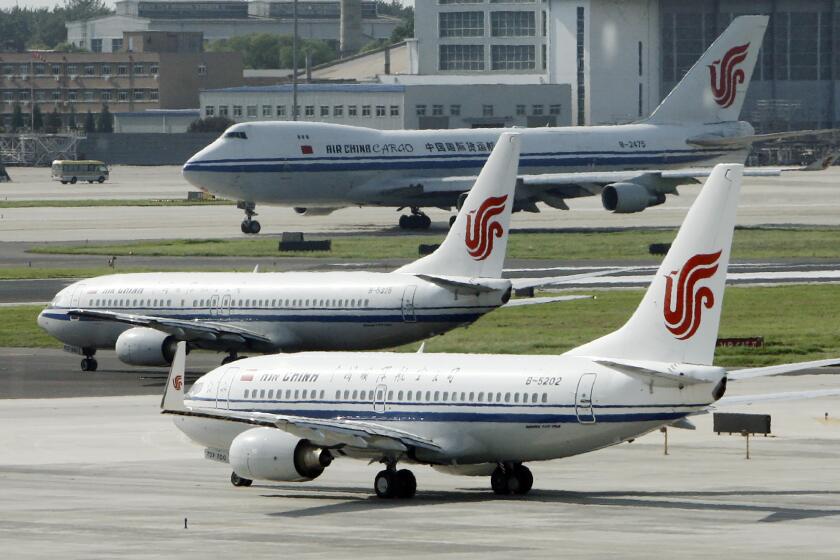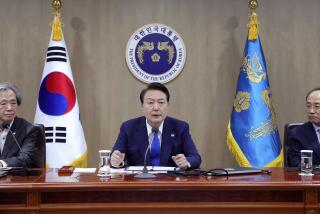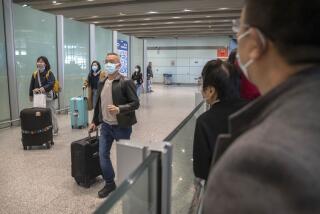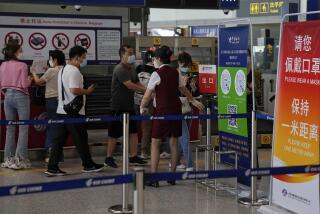Hong Kong to end mandatory COVID hotel quarantine for travelers
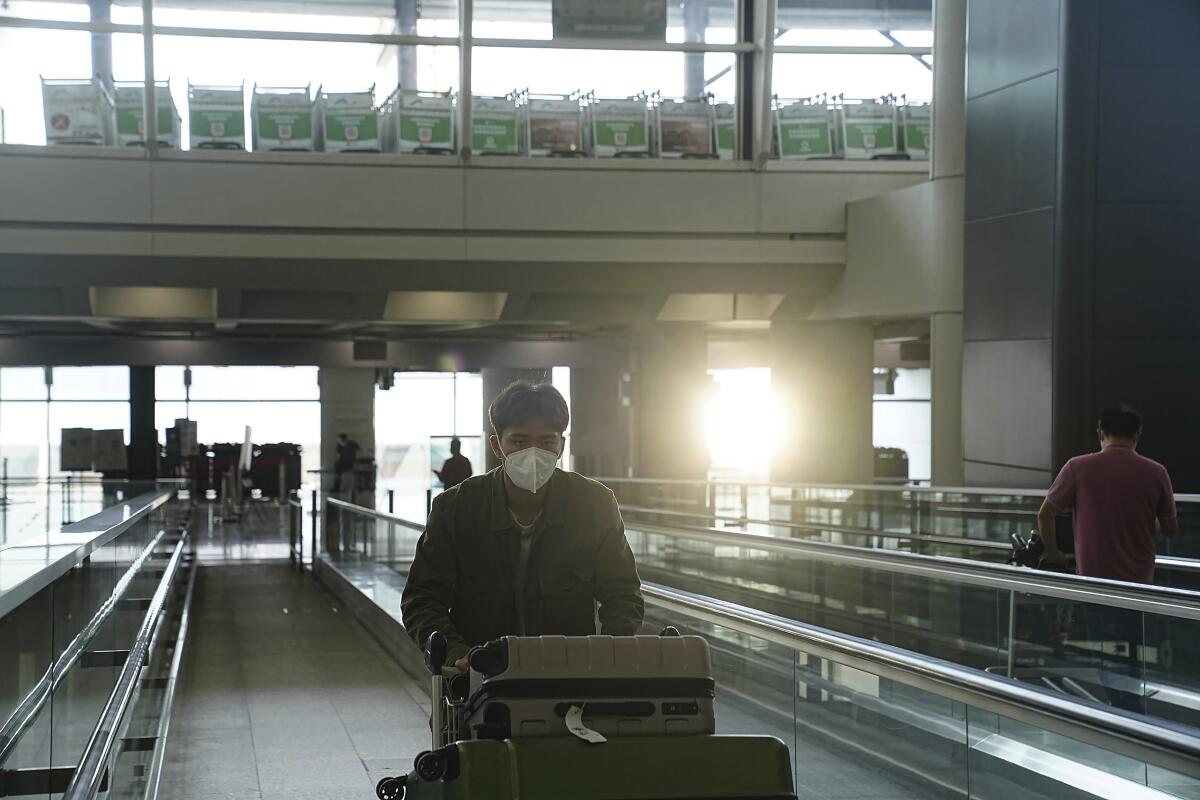
- Share via
HONG KONG — Hong Kong’s leader announced Friday that the city would no longer require incoming travelers to quarantine in designated hotels, as it seeks to remain competitive and open up globally after nearly two years of strict COVID-19 pandemic rules.
Additionally, incoming travelers will no longer need to have a negative PCR test within 48 hours of boarding a plane to Hong Kong, the city’s chief executive, John Lee, told reporters Friday. Instead, they will need to present a negative result from a rapid antigen test conducted within 24 hours of the flight. The rules go into effect Monday.
“While we can’t control the trend of the epidemic, we must allow the maximum room to allow connectivity with the world so that we can have economic momentum and to reduce inconvenience to arriving travelers,” Lee said, adding that authorities would not roll back the measures announced Friday.
He said there must be a “balance between risks and economic growth.”
Travelers entering Hong Kong will have to undergo three days of home monitoring. If they test negative for the coronavirus after the three days, they will be allowed into restaurants and other public venues. They must also undergo several mandatory PCR tests, including one on arrival, as well as on the second, fourth and sixth days in Hong Kong, coupled with daily antigen rapid tests during the first week.
Hong Kong actor Kenneth Tsang had tested negative for COVID-19 just before he died Wednesday while isolating in a hotel upon returning from Singapore.
Hong Kong’s easing of regulations sparked a rush for bookings; airline Cathay Pacific’s website was “experiencing high traffic,” officials said. Visitors to the site had to wait in a virtual queue to enter.
The city is reporting fewer than 6,000 coronavirus infections a day, compared with more than 10,000 early this month. A large majority are among residents.
For nearly two years, Hong Kong required those who arrived in the city from overseas to quarantine in designated hotels. At one point, the city had among the world’s longest quarantine periods, at 21 days of enforced isolation.
Neighboring Taiwan — which unlike Hong Kong is self-governed — is expected to ease its requirements next month, leaving mainland China as one of the only places in the world that will require travelers to quarantine upon arrival.
The nighttime bus crash that killed 27 people in southwest China set off a storm of anger online over the country’s strict COVID-19 policies.
Hong Kong for most of the pandemic has aligned with China’s “zero-COVID” strategy. Over the last 2½ years, authorities have imposed strict social-distancing measures and locked down residential buildings with confirmed coronavirus infections in order to mass-test residents.
As the rest of the world reopened, businesses urged Hong Kong authorities to come up with an exit strategy from its strict rules in order to remain competitive as tens of thousands of residents left the city. Several companies moved their offices to Singapore or elsewhere as they sought relief from the city’s restrictions.
Breaking News
Get breaking news, investigations, analysis and more signature journalism from the Los Angeles Times in your inbox.
You may occasionally receive promotional content from the Los Angeles Times.
Singapore eased travel curbs and relaxed coronavirus restrictions months ago, sparking concerns that Hong Kong might lose out in competitiveness as an international financial center and regional business hub.
Lee said authorities would keep monitoring the situation in Hong Kong to determine whether further relaxation of rules is possible. “If there are positive developments as we progress … there will be more room for us to do extra measures so that we can have more movement, more activities and more room for us to go about different [activities],” he said.
The easing of measures comes as the city prepares for some high-profile events, including the Hong Kong Sevens rugby tournament in November and an international banking summit.
The Chinese government says 26 people are still missing after this week’s magnitude 6.8 earthquake in Sichuan province.
The rugby tournament is returning to the city for the first time since the pandemic began. In a news conference Friday, organizers said risk-mitigation measures will include making sure that all players and officials have had at least two COVID-19 vaccinations.
“The return of the Hong Kong Sevens means business is returning too. And I know we can’t wait for both to fill the stands, and the streets and shops, restaurants and hopefully bars as well,” financial secretary Paul Chan said at a Rugby Sevens news conference.
“The momentum will keep on building. And long beyond. There will be no stopping our many prestigious international events,” Chan said.
The relaxation of travel requirements drew optimistic reactions from some residents in the city. However, there are others who believe that three days of monitoring for arrivals is still an inconvenient measure.
The U.S. suspension of 26 flights by Chinese airlines follows a similar move by Beijing against American carriers in a dispute over COVID-19 controls.
“It’s too late. Everybody else has opened up for such a long time,” said Eva Leung.
“The economy has become like this — no one is coming,” she said, adding that it’s still a hassle, especially for business travelers who have to move around the city for work. “It’s still not convenient.”
More to Read
Sign up for Essential California
The most important California stories and recommendations in your inbox every morning.
You may occasionally receive promotional content from the Los Angeles Times.
